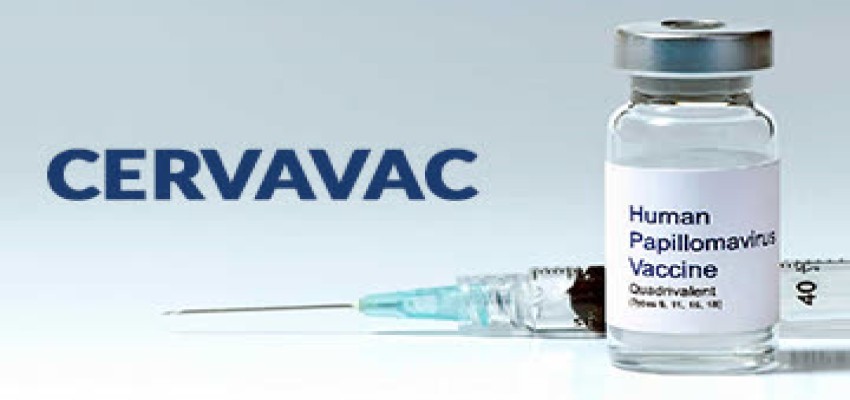
The Serum Institute of India (SII) has launched the first indigenously developed human papillomavirus vaccine (HPV)-- “CERVAVAC," against the cervical cancer in women. The launch took place on January 24, 2023, on the occasion of India's National Girl Child Day.
Cervical cancer
- Cervical cancer is a cancer of the cervix or the lower-most part of the uterus. It is the fourth most common cancer in women, with India accounting for nearly one-fourth of the world’s cervical cancer deaths.
- Various strains of the human papillomavirus (HPV), a sexually transmitted infection, play a role in causing most cervical cancer.
- You can reduce your risk of developing cervical cancer by receiving a vaccine that protects against HPV infection.
- Cervical cancer ranks as the 2nd most prevalent cancers in India and accounts for nearly one-fourth of the world’s cervical cancer deaths despite being largely preventable
About CERVAVAC
- CERVAVAC has been jointly created by the Serum Institute of India (SII) and the Department of Biotechnology (DBT).
- Initially, the vaccine is to be provided to girls in the 9-14 years age group.
- Affordable and cost- effective vaccine, the price of the Vaccine is around Rs200-400 per dose.
- CERVAVAC vaccine has demonstrated a robust antibody response against all targeted HPV types, and in all dose and age groups. The response is nearly 1,000 times higher than the baseline.
- According to the International Classification of Disease by WHO (2022)- In India, 65,978 females were detected with cervical cancer in 2015. The figure climbed to 75,209 in 2017 which is expected to reach 85,241 in 2025.
A promising prevention of Cervical Cancer
- Most promising intervention for preventing cervical cancer is vaccination against human papillomavirus (HPV).
- As per the World Health Organisation, when diagnosed timely and managed effectively, cervical cancer is one of the most successfully treatable forms of cancer. Infact, cancers diagnosed in late stages can also be controlled with appropriate treatment and palliative care.

